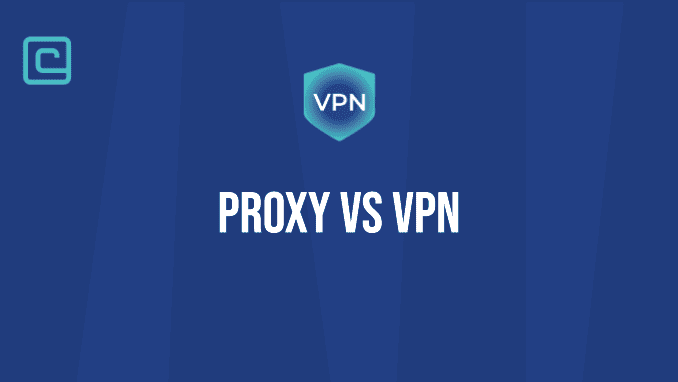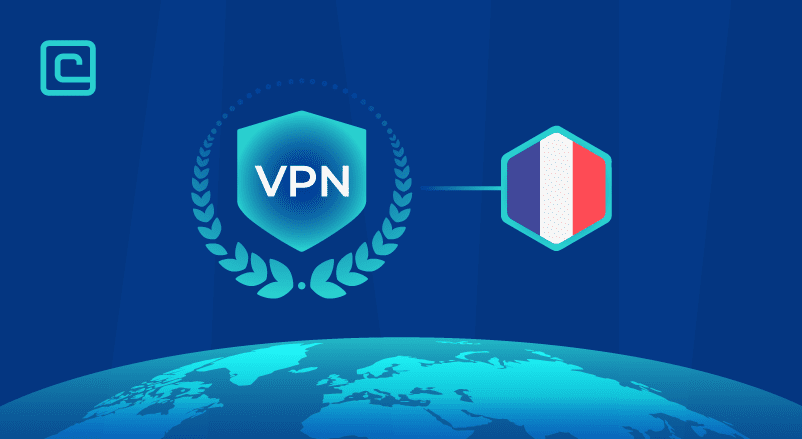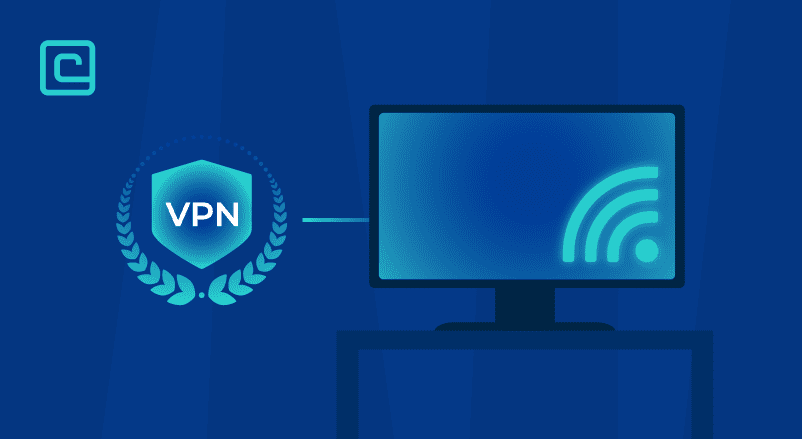Proxy vs VPN: What’s the Difference? Ultimate Comparison 2024

Proxy servers and VPN servers are great tools for keeping your IP address safe and your web traffic private from your Internet Service Provider and other online snoopers. That said, while these two tools share many similarities, there are also some big differences you should know before making your choice.
In this detailed proxy vs. VPN comparison page, I’ll go into the inner workings of VPN and proxy connections, discuss the types of VPNs and proxies, and compare these two privacy tools to help you pick the one that suits you best. Let’s get into it!
VPN Defined: What is a VPN?
VPNs, or Virtual Private Networks, are privacy and security tools that allow users to create a secure and encrypted connection to the Internet. They establish a private network connection over a public network infrastructure.
VPNs are commonly used by individuals, businesses, and organizations to secure remote access for employees, protect sensitive data during online transactions, bypass geo-restrictions, and maintain anonymity while browsing the Internet. They provide a versatile and powerful solution for safeguarding privacy and security.
How Does a Virtual Private Network Work?
A VPN service works by establishing a secure and encrypted connection between your device and a remote server. When you use the VPN client, it creates a tunnel through which all your Internet traffic passes. This tunnel encrypts your data, protecting it from potential eavesdropping or interception by unauthorized parties.
Once connected to a VPN server, your web traffic is routed through that server before reaching its destination. This means that when you browse the web or access online services, your requests appear to come from the VPN server’s location rather than your actual location. This process masks your IP, providing a level of anonymity and making it more difficult for websites or services to track your real identity or location.
The encrypted tunnel provided by the VPN service ensures that your data remains secure and private while in transit. Even if someone manages to intercept your encrypted data, they won’t be able to decipher the information within. With a VPN provider, even your Internet Service Provider, government agencies, and third parties can’t monitor your online activities.
Types of VPNs
Remote Access VPN
Enables individual users or employees to securely connect to a private network from a remote location, such as their home or a public Wi-Fi hotspot. These services are often called client-to-site VPNs.
Site-to-Site VPN
Establishes a secure connection between two or more networks, allowing seamless communication and data transfer between different locations or branch offices. Site-to-site VPNs can be intranet and extranet-based.
Cloud VPN
Unlike traditional VPNs that rely on dedicated hardware or servers, a cloud VPN leverages cloud computing resources to establish secure connections between users and the desired network or resources.
Mobile VPN
These types of VPNs primarily work through cellular networks and provide superb usability on unstable connections. They have an excellent tolerance for connection changes, making them more convenient than remote-access VPNs.
Test Your VPN Knowledge – Take A Quiz!
What Are Proxy Servers?
The proxy server acts as an intermediary server between your device and the Internet. When you make a request for a web page, file, or any other online resource, the request first goes to the proxy server. The proxy server then forwards the request to the host server on your behalf.
Proxy servers serve various purposes, such as improving performance through caching, enhancing privacy by masking your IP, and bypassing restrictions imposed by firewalls or network policies. They can be used to access geo-restricted content, filter web content, or provide an additional layer of security.
By routing your web traffic through a proxy server, you can benefit from features like IP anonymity, content filtering, and load balancing. Proxies can be configured at the device or application level, allowing you to selectively route specific traffic through the proxy server.
In the context of VPNs and proxy servers, some VPN services actually offer you the option of getting a private proxy. This allows you to have a single IP address that no other VPN user will use. It’s not something most users need but does have its perks in certain scenarios.
Types of Proxies
HTTP proxies
An HTTP proxy, also known as a web proxy, specifically handles HTTP requests between clients and servers. It acts as an intermediary for HTTP traffic, allowing clients to access web pages through the proxy server. HTTP proxies can provide caching, content filtering, and access control functionalities. They are commonly used for web filtering, improving performance through caching, or bypassing network restrictions.
SOCKS5 Proxies
SOCKS is a protocol that allows clients to establish a TCP or UDP connection through a proxy server. SOCKS proxies are versatile and can handle various types of traffic, including web browsing, email, using file-sharing sites, and other network services.
Transparent Proxies

A transparent proxy intercepts client requests without requiring any configuration on the client side. Clients are unaware that their requests are being passed through a transparent proxy server. A transparent proxy isn’t only used to unblock restricted sites. Transparent proxies are commonly used by network administrators for caching purposes or to implement content filtering and access control for certain websites.
How Do Proxy Servers Work?
The process begins with the client initiating a request. For example, when a user types a URL or clicks a link to visit a website, the client’s request is intercepted by the proxy server. The client is configured to use the proxy server by specifying its IP address and port.
Upon receiving the request, the proxy server evaluates it based on various factors. The proxy relays the client’s request, including the original headers and content, to the destination server. The destination server receives the request from the proxy server, processes it as it would if the client had contacted it directly, and generates a response.
The proxy server then relays the response back to the client. It may modify the response if necessary, such as applying content filtering or caching mechanisms. Finally, the client receives the response from the proxy server, which appears as if it came directly from the destination server.
Proxy vs. VPN Main Differences
Proxy servers and VPN providers both keep IP addresses hidden and acta s an intermediary between you and the web server. However, to fully understand whether you should use a VPN or proxy server, you should know the main differences between them. Here’s a more detailed proxy vs. VPN comparison through their main dissimilarities:
| Feature | VPN | Proxy Server |
|---|---|---|
| Encryption | VPNs encrypt all traffic by working on an operating system level | Doesn’t encrypt traffic |
| Traffic Handling | Redirects all internet traffic through the VPN server | Selectively handles specific types of traffic |
| IP Address Masking | Masks your IP address with the VPN server’s IP | Masks your IP for specific requests made through the proxy server |
| Anonymity | Provides a higher level of anonymity by hiding your IP address and encrypting all traffic | Provides some level of anonymity, but advanced tracking techniques can potentially reveal your IP address |
Proxy vs. VPN Main Similarities
While VPNs and proxy servers differ in many aspects, they also share a few similarities. With that in mind here are some of the traits a proxy server and a VPN server share:
- Privacy — Both proxies and VPNs can provide some level of privacy by masking your IP address.
- Geo-Restrictions — Both can help bypass geo-restrictions, allowing you to access geographically restricted content. You can use either tool to bypass content restrictions on video streaming services like Netflix, BBC iPlayer, and Amazon Prime Video.
- Anonymity — Proxy servers and VPN providers offer a degree of anonymity by hiding your actual IP address.
- Intermediary — These two tools both act as intermediaries between your device and the Internet, forwarding requests to the target server.
- Connection Methods — Proxy servers and VPNs can be configured at the device or application level for specific traffic routing.
- Performance — Both a VPN and a proxy server may introduce some level of latency or affect Internet connection speeds due to the additional routing or encryption. This is especially true for free proxy connections.
- Applications — Proxy servers and VPNs can be used for web browsing, accessing specific applications, playing online games, or enhancing privacy for online activities.
Do You Need a Proxy If You Have a VPN?
Using both a proxy and a VPN simultaneously is not a common practice and is generally unnecessary. While both proxies and VPNs offer ways to enhance online privacy and security, they operate differently and serve distinct purposes.
When you use a VPN, it already encrypts your Internet traffic and assigns you a different IP address, effectively offering the benefits that a proxy provides. The VPN server acts as a proxy itself, routing your requests and protecting your identity.
Combining a proxy with a VPN can introduce unnecessary complexity and may even lead to conflicts or reduced performance. In most cases, using a VPN alone is sufficient to secure your Internet activity, protect your privacy, and bypass geo-restrictions, or even torrenting.
However, there might be specific situations where using a proxy alongside a VPN could be useful, such as accessing certain websites that require specific proxy configurations. Nevertheless, such scenarios are rare, and the vast majority of users will find that a VPN alone meets their privacy and security needs.
Which One Should You Use And When?
Knowing the differences and similarities between VPN connections and proxy server connections, you can decide which one you should use and when you should use it. To keep this as simple as possible, I want to end this proxy vs. VPN comparison page with a few quick pointers on when to pick either a proxy server or a secure VPN server.
I recommend choosing a VPN connection when you need faster speeds and more robust protection for keeping your browsing activity hidden. Unlike proxies, VPNs encrypt your entire connection and protect your network traffic. With a trusted VPN, you don’t have to worry about traffic logging. They are also better for more complete coverage, as they work on an operating system level and can cover more than one web app or site.
On the other hand, you should pick a proxy server if your online security requirements aren’t as demanding and you don’t plan on using the tool very frequently. If you only want to cover one app or site and don’t need data encryption, a proxy server is a solid choice. Plus, if you want a budget option, many proxy servers are available for free.
Lastly, no matter which one you pick, keep in mind that not all VPNs and proxy service providers can offer you the same level of service. Avoid using free VPNs, and be careful when picking a free proxy. I recommend picking a premium VPN like NordVPN or a proven proxy provider like SmartProxy.
Proxy vs. VPN FAQs
Is VPN better than a proxy?
In general, VPNs are considered better than proxies for ensuring privacy and security online. A proxy provides a less secure connection. VPNs offer a more comprehensive solution for online protection, bypassing restrictions, and maintaining privacy.
Can I use VPN and proxy together?
While it is technically possible to use a VPN and a proxy together, it is not a common or recommended practice. In most cases, using a VPN alone is sufficient to protect your online activities and maintain anonymity, as only a VPN will encrypt your data.
Should I use a free proxy server or a free VPN?
It’s best to avoid using both free proxies and free VPNs. Free proxy servers may not provide might not be safe to use. Free VPNs may have privacy concerns, such as selling user data or displaying ads.
Can proxies be traced?
Yes, proxies can be traced. While proxies can provide a layer of anonymity, it’s still possible for them to expose your original IP address. Law enforcement, network administrators, or skilled individuals can employ various techniques to trace the source of proxy traffic.
Does a proxy hide your IP address?
Yes, a proxy server can hide your IP address. When you connect to a website through a proxy, the server acts as an intermediary, sending requests on your behalf. The proxy server will hide your IP address, and the site you access will only see the proxy’s IP.
Are proxy servers safe?
Proxy servers can be safe to use, but it depends on various factors. A reputable and reliable proxy service that employs strong encryption protocols can help protect your Internet data and privacy. On the other hand, free or public proxies can pose greater risks.
Cybersecurity and VPN researcher

